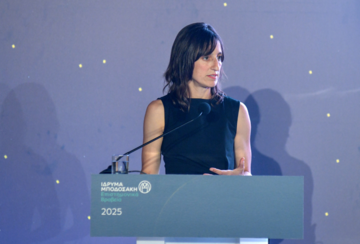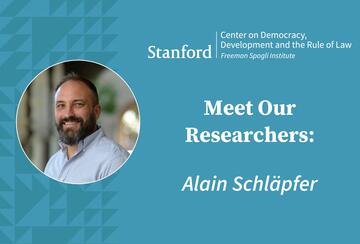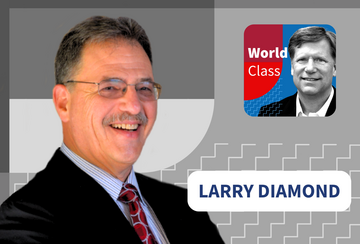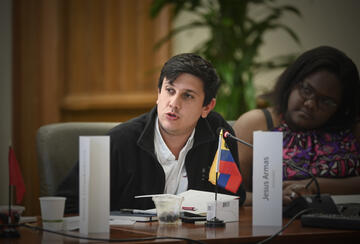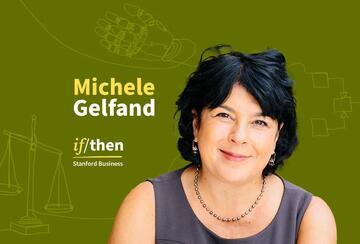CDDRL News
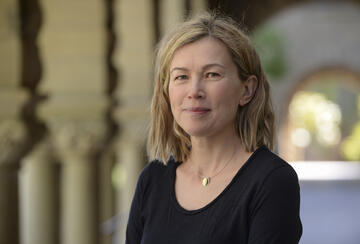
The award-winning article is entitled “Tilly Goes to Church: The Religious and Medieval Roots of European State Fragmentation.”

Political science professors Lisa Blaydes, Beatriz Magaloni, and James Fearon are among researchers at the King Center on Global Development addressing challenges such as gender-based violence and low labor participation, with the aim to inform supportive policy interventions.
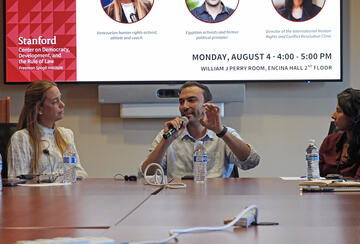
A panel discussion featuring 2025 Fisher Family Summer Fellows Lilian Tintori and Waleed Shawky, along with Gulika Reddy, Director of the International Human Rights and Conflict Resolution Clinic at Stanford Law School, explored the human cost of political imprisonment, the barriers advocates face, and the strategies available to combat them.
Recognized for her groundbreaking research on migration, identity, and intergroup relations, Fouka joins an elite group of Greek scientists shaping global scholarship.
Investigating how reputation, cultural norms, and conditional cooperation shape social harmony and conflict with CDDRL Research Scholar Alain Schläpfer.
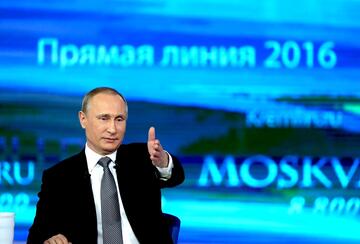
CDDRL Research-in-Brief [5-minute read]
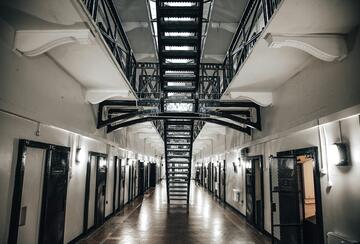
CDDRL Research-in-Brief [4-minute read]

CDDRL Research-in-Brief [4-minute read]
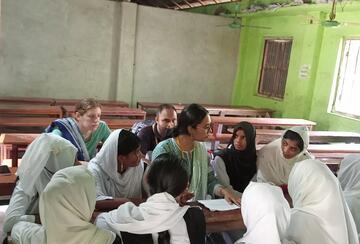
Adolescents living in flood-prone areas of Bangladesh face dramatically higher rates of anxiety and depression than their peers in lower-risk regions, according to a Stanford-led study by CDDRL Fisher Family Honors Program alumna Liza Goldberg ('24) that highlights a hidden cost of climate change with potentially devastating long-term consequences.
How Democracy Is Doing Around the World
On the World Class podcast, Larry Diamond and Michael McFaul compare how civic discourse and political institutions are holding up in the United States, South Korea, Taiwan, and other democracies.
A joint statement from the Center on Democracy, Development and the Rule of Law (CDDRL) and the Ford Dorsey Master’s in International Policy program (MIP) at Stanford University.
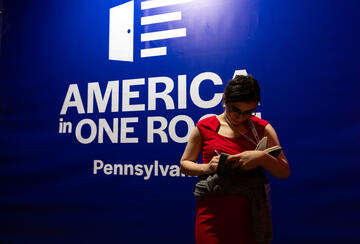
America in One Room: Pennsylvania brings together a representative sample of registered Pennsylvania voters for a statewide Deliberative Poll in this crucial swing state, revealing surprising common ground and public opinion shifts on issues from immigration to healthcare to democratic reform.
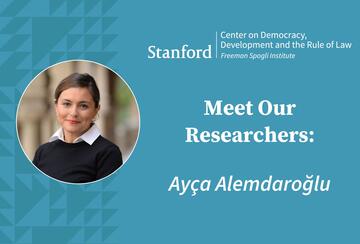
Exploring how authoritarian regimes influence identity, opposition movements, and class dynamics with CDDRL Research Scholar Ayça Alemdaroğlu, Associate Director of the center's Program on Turkey.
Culture is all around us — but we take it for granted, says Michele Gelfand, a professor of organizational behavior at Stanford Graduate School of Business and an affiliated faculty member at CDDRL.

There is a significant gap between what technology, especially AI technology, is being developed and the public's understanding of such technologies. We must ask: what if the public were not just passive recipients of these technologies, but active participants in guiding their evolution?
Amichai Magen and Abbas Milani explore the geopolitical dynamics and implications of the conflict between Israel and Iran.
A June 3 panel hosted by CDDRL’s Program on Identity, Democracy, and Justice brought together four leaders who shared their personal and professional insights on how to continue the work of justice when the road is long and the odds are steep.

Charles Sheiner ('25) is a recipient of the 2025 Firestone Medal, and Adrian Feinberg ('25) and Adelaide Madary ('25) have won CDDRL's Outstanding Thesis Awards.
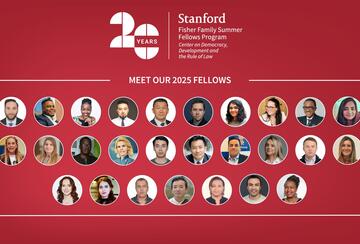
In July 2025, the Center on Democracy, Development and the Rule of Law will welcome a diverse cohort of 27 experienced practitioners from 18 countries who are working to advance democratic practices and economic and legal reform in contexts where freedom, human development, and good governance are fragile or at risk.

More than 200 academics and political leaders met last week at Stanford for “Climate Resilience and Local Governmental Policy: Lessons from Los Angeles and Tel Aviv,” a groundbreaking conference organized by CDDRL's Visiting Fellows in Israel Studies program.

Dr. Natalia Forrat, a comparative political sociologist and lecturer at the University of Michigan’s Center for Russian, East European, and Eurasian Studies, explores how authoritarian regimes are maintained not only through top-down coercion but also through everyday social dynamics at the grassroots level.
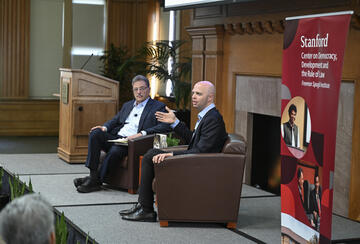
Journalist Describes Surviving October 7 Hamas Attack and Analyzes Israeli-Palestinian Relations
Journalist Amir Tibon shared his family’s story of survival, betrayal, and hope for peace with a Stanford audience, while also offering insights on contemporary Israeli politics.
Seniors Alex Borthwick, Adrian Feinberg, Malaina Kapoor, and Avinash Thakkar (Fisher Family Honors Program class of 2025), and junior Emma Wang (Fisher Family Honors Program class of 2026) are among the newest members of this prestigious academic honors society.
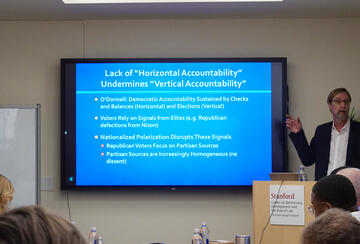
University of California, Berkeley Distinguished Professor Paul Pierson explores the risks of democratic backsliding in the United States in the face of rising polarization and inequality.
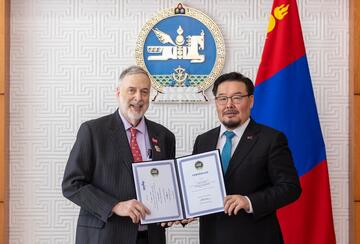
The award, decreed by President Ukhnaa Khurelsukh, is Mongolia’s highest state honor and recognizes Fishkin for his pioneering contributions to deliberative democracy.


